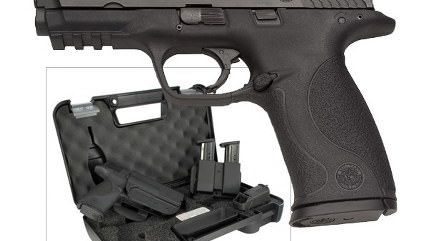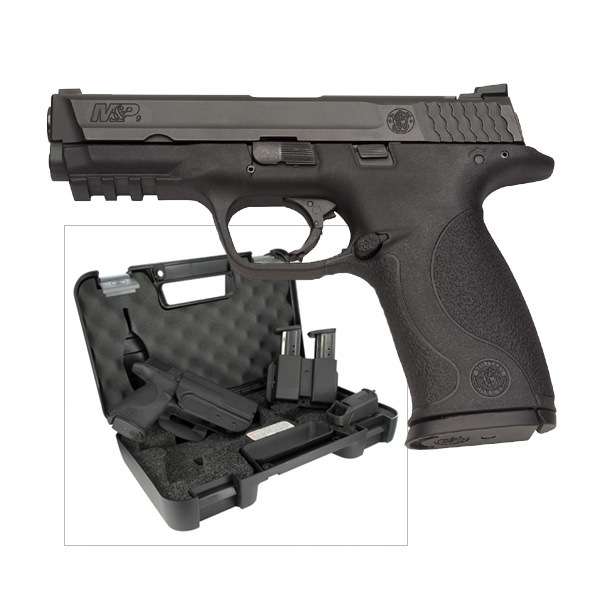Smith & Wesson Pushed Out of California Handgun Market By Red Tape


California's efforts to regulate firearms out of easy availability (an official summary of state gun regulations runs to 50 pages) continue to bear fruit, as Smith & Wesson announces that it's not willing to comply with the latest round of inane rules, effectively removing most of its pistols from the state's market. The specific bit of red tape pushing the company out is a requirement that new pistols (including modifications of existing firearms) incorporate controversial "microstamping" technology intended to leave unique markings on fired cases.
In a press release, the company says:
Under California's "Unsafe Handgun Act," any new semi-automatic pistol introduced into that state must comply with microstamping laws. In addition, California asserts that anything other than a cosmetic change to a handgun already on the California Roster of Handguns Certified for Sale, including performance enhancements and other improvements, requires it to be removed from the roster and retested. For semi- automatic pistols, this means it must comply with the microstamping requirements, as well.
Smith & Wesson does not and will not include microstamp ing in its firearms. A number of studies have indicated that microstamping is unreliable, serves no safety purpose, is cost prohibitive and, most importantly, is not proven to aid in preventing or solving crimes. The microstamping mandate and the company's unwillingness to adopt this so-called technology will result in a diminishing number of Smith & Wesson semi-automatic pistols available for purchase by California residents.
This is not a problem unique to Smith & Wesson. The microstamping legislation and California's position regarding performance enhancements and other improvements creates the same challenge for all firearm manufacturers, since presumably all of them refine and improve their products over time.
In order to retain a presence in the California market for semi-automatic pistols, the company deliberately plans to make no improvements to the M&P Shield and the SDVE pistols so that they'll remain on-sale without a need to comply with the microstamping law. Except for the Shield, all of the M&P line of pistols are expected to fall off the roster of guns legal for sale in California by August 2014 (revolvers are exempt).
Microstamping is held out as one of the holy grails of modern gun controllers seeking a technological crutch for their position, but the National Shooting Sports Foundation calls it "a costly and time-consuming process" that's not especially reliable. It's also easily defeated by the clever expedient of swapping out firing pins or other easily replaced parts. Or just filing down the stamp (diamond-coated files are a good choice).
Ruger Firearms already announced that it won't comply with the microstamping rule. The National Shooting Sports Foundation and the Sporting Arms and Ammunition Manufacturers' Institute have filed suit against California over the issue
Smith & Wesson representatives didn't respond to queries as to whether they would follow in the footsteps of gunmakers like Barrett and also refuse sales to law enforcement agencies in jurisdictions that effectively try to disarm private citizens. Such a move might actually get officials' attention.


Show Comments (151)